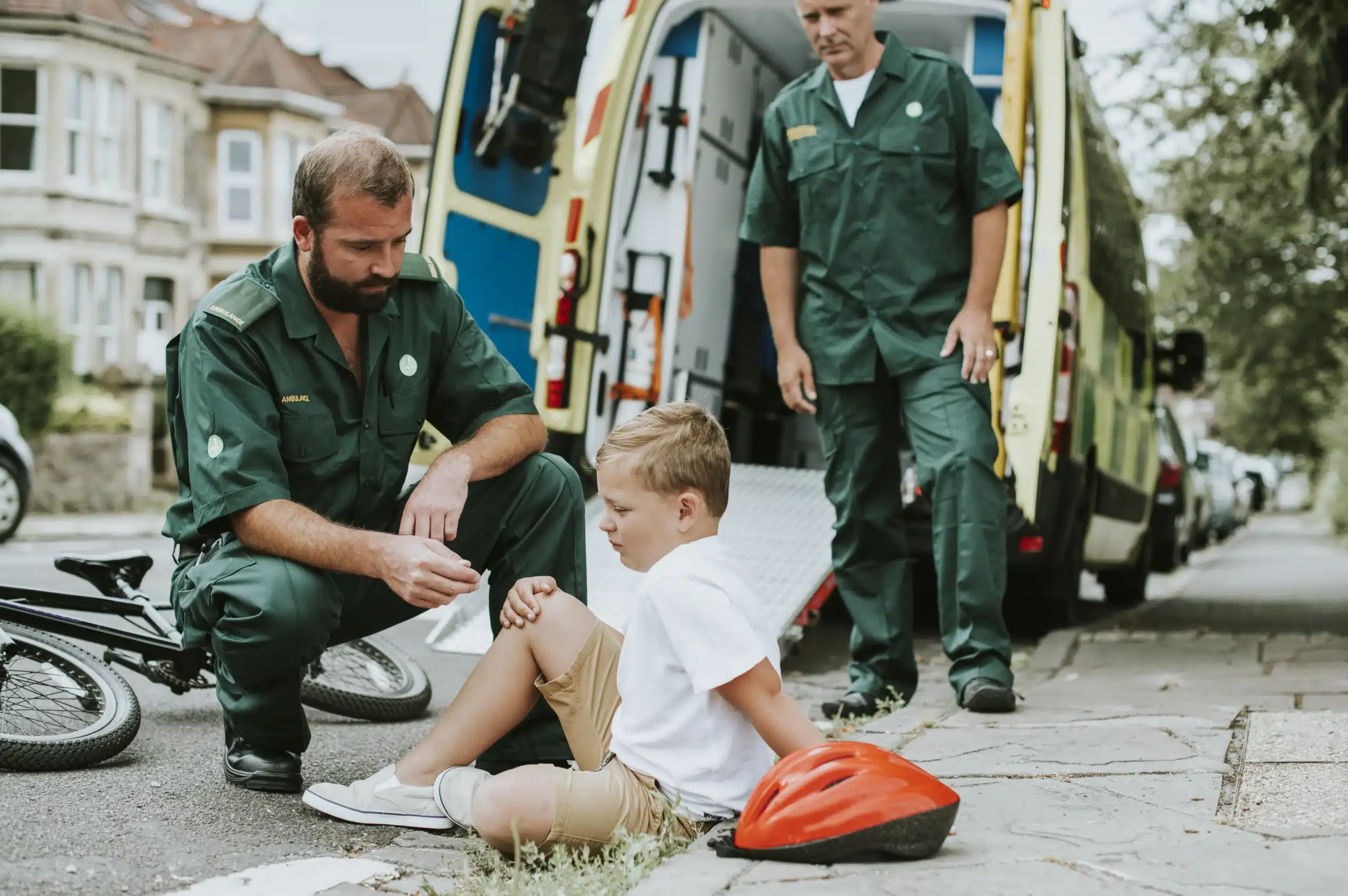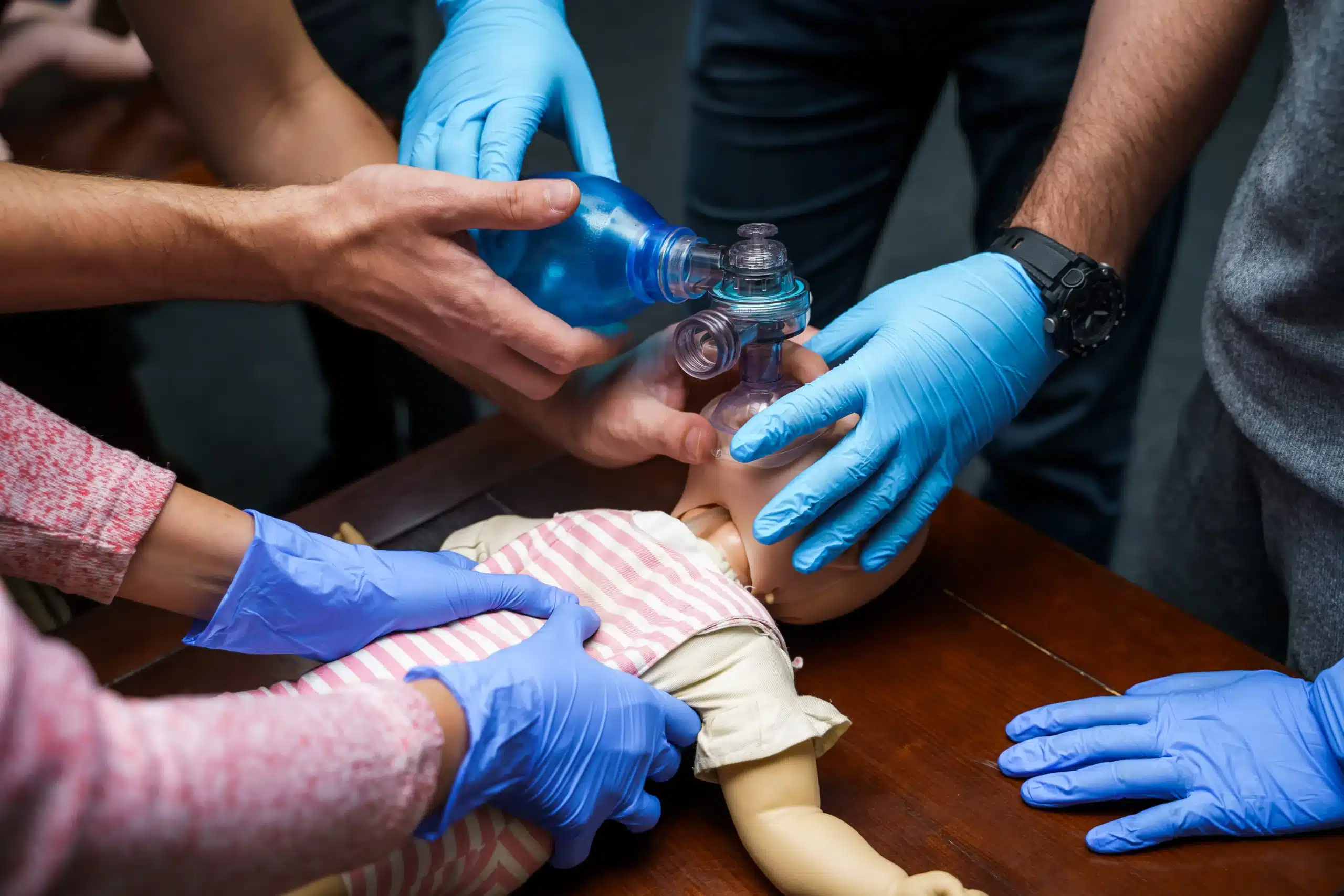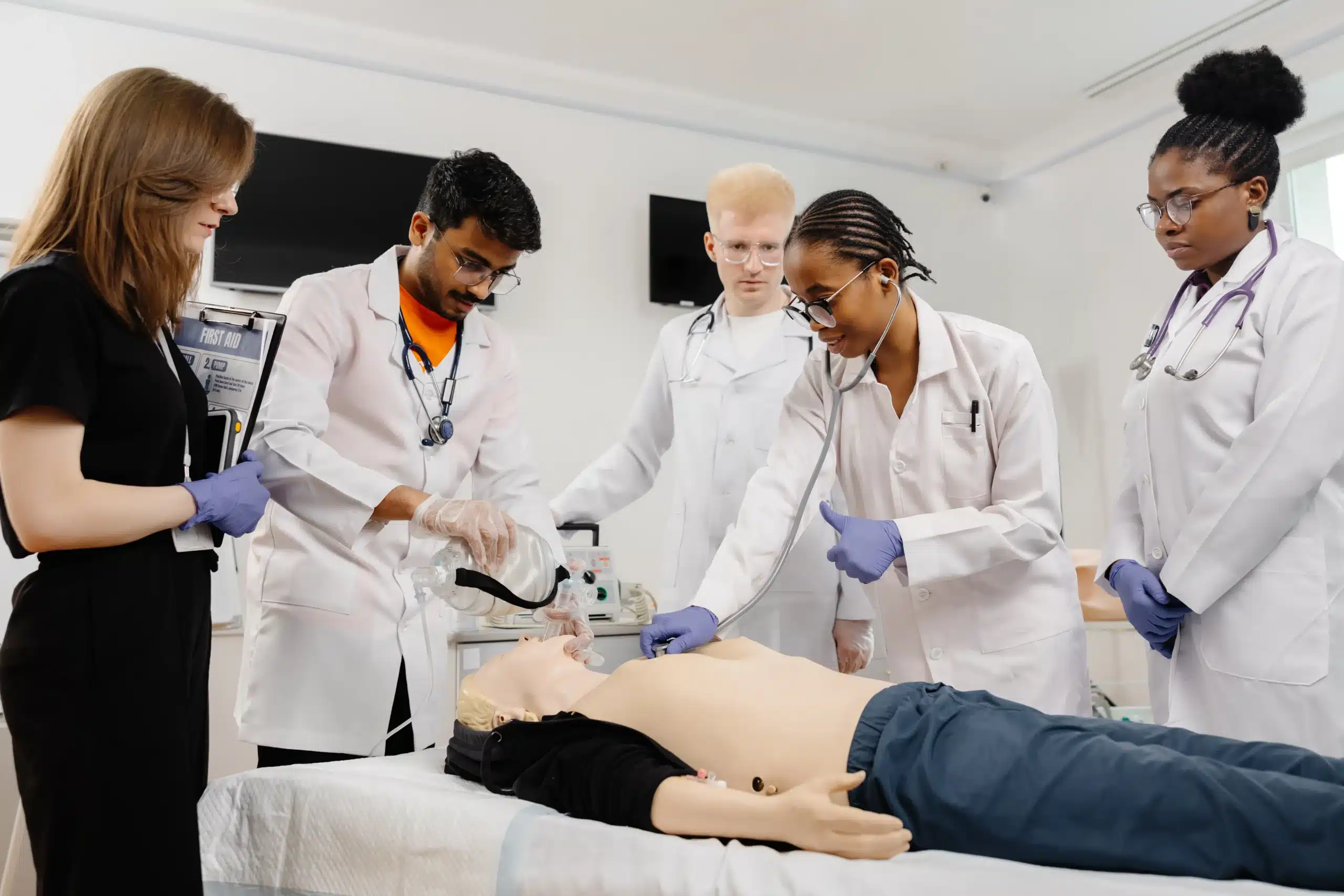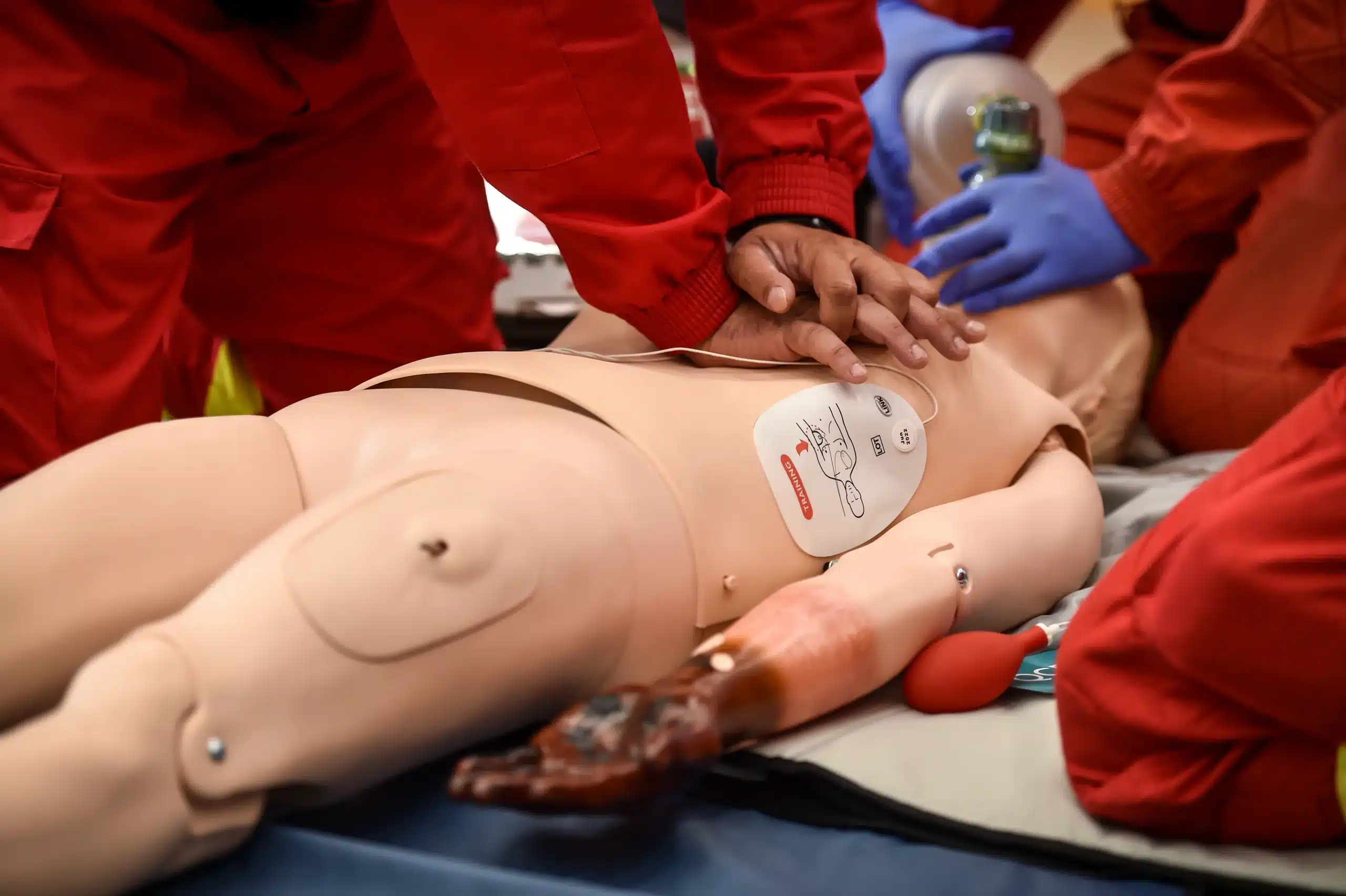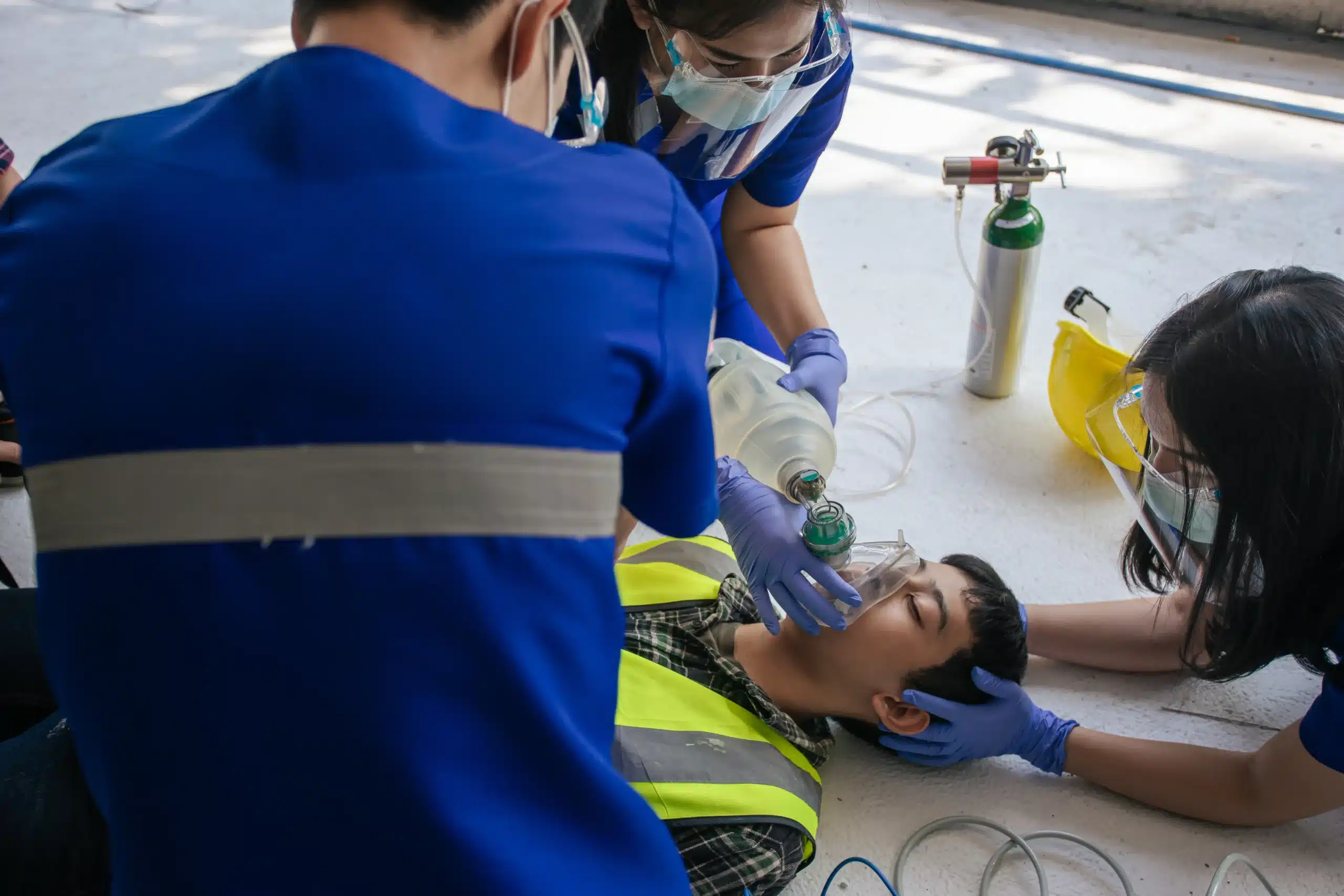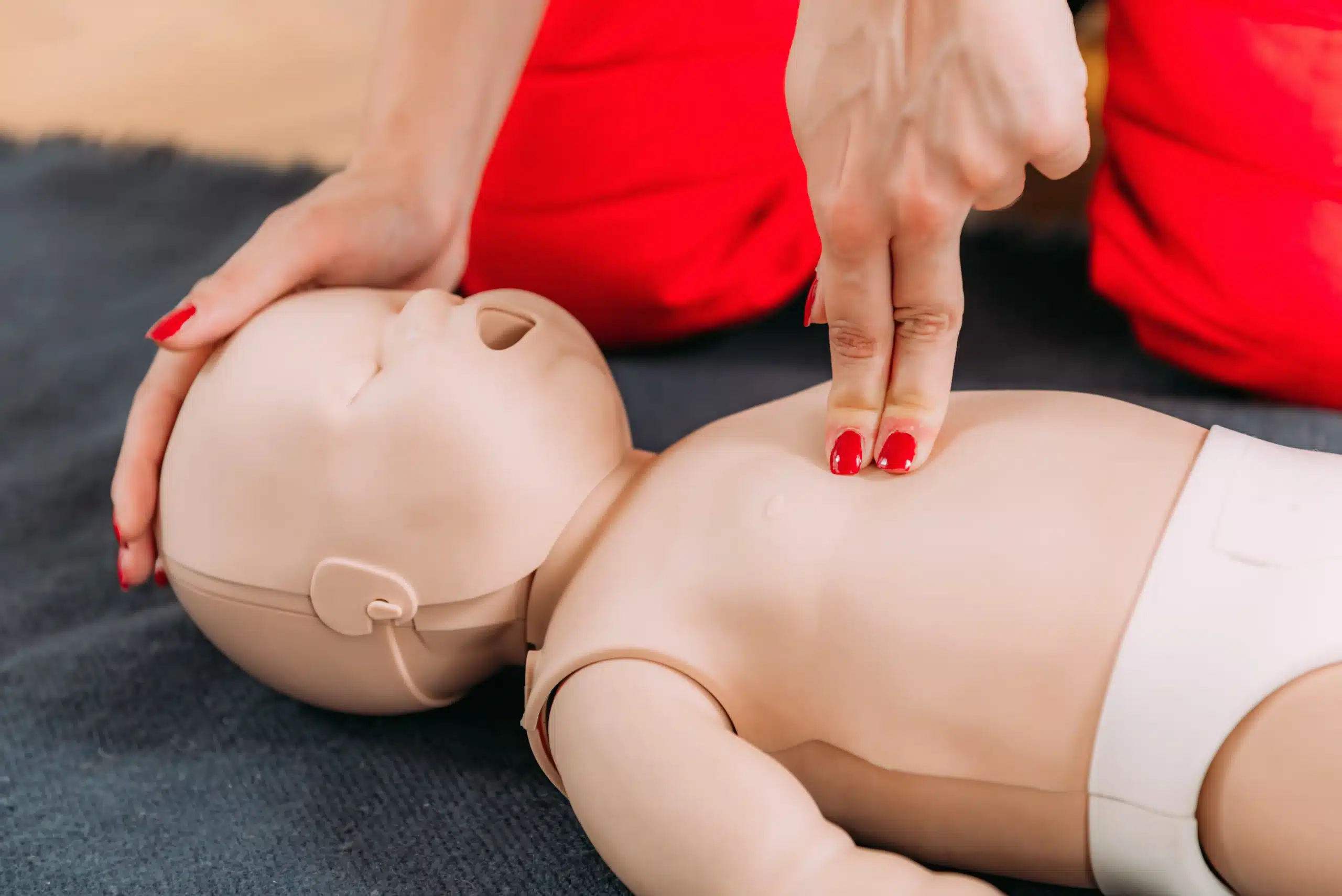Working with children in a healthcare setting? You know how quickly situations can change, and how crucial it is to be prepared for anything. Pediatric Advanced Life Support (PALS) certification isn’t just another credential—it’s your toolkit for handling pediatric emergencies with confidence and skill. In San Francisco, where top-notch healthcare is a must, PALS certification is especially valuable. This post breaks down everything you need to know about pediatric advanced life support in San Francisco, from course content and local providers like Safety Training Seminars to the long-term benefits for your career and your patients. Let’s explore how PALS empowers you to provide the best possible care for San Francisco’s youngest residents.
Key Takeaways
- PALS certification equips you with life-saving pediatric skills: It provides the knowledge and hands-on training necessary to confidently manage pediatric emergencies.
- Choosing the right PALS course is crucial: Consider factors like location, schedule, and instructor experience to find the best fit for your learning style.
- Maintaining your PALS skills is a continuous process: Stay up-to-date with the latest guidelines through renewal courses and ongoing education to provide the best care.
What is Pediatric Advanced Life Support (PALS)?
Pediatric Advanced Life Support (PALS) certification is a specialized program designed to equip healthcare providers with the skills to respond to life-threatening situations in infants and children. It focuses on a systematic approach to pediatric assessment, basic life support, PALS treatment algorithms, and effective resuscitation techniques. This training is essential for anyone working in pediatrics, emergency medicine, or critical care. If you’re in the San Francisco Bay Area, you can find PALS courses through providers like Safety Training Seminars, which offers convenient daily classes.
Core PALS Training Components
PALS courses cover a wide range of topics, including recognizing and managing respiratory distress, shock, and cardiac arrest in children. The training emphasizes early intervention and the importance of teamwork during emergencies. Participants learn how to use specialized equipment like defibrillators and practice advanced airway management techniques. The curriculum also includes instruction on effective communication and coordination within the healthcare team.
Why PALS Matters for Healthcare Professionals
For healthcare professionals, PALS certification is more than just a credential; it’s a vital tool for providing the best possible care. Studies show that PALS-trained professionals are better at recognizing and responding to signs of distress in young patients. This training builds confidence and improves the ability to work effectively under pressure, leading to better outcomes in pediatric emergencies. PALS certification demonstrates a commitment to providing high-quality care and staying up-to-date with the latest life-saving techniques. Safety Training Seminars offers PALS courses in San Francisco, with classes available daily.
Top PALS Certification Providers in San Francisco
Finding the right PALS certification course is crucial for healthcare professionals. Here are a few providers in San Francisco to consider:
Safety Training Seminars
Safety Training Seminars offers PALS certification and renewal courses right here in San Francisco. As a woman-owned business focused on AHA training, they emphasize high-quality instruction and convenient scheduling, with courses offered seven days a week. They also serve the surrounding areas, including Daly City, San Mateo, and Oakland. Visit their website for more information on their courses and commitment to excellent customer service, plus details on their low price guarantee.
HeartStart CPR
HeartStart CPR provides AHA PALS certification and recertification classes throughout the San Francisco Bay Area. Their website focuses on healthcare providers seeking initial certification or recertification.
American Heart Association (AHA)
The American Heart Association (AHA) offers PALS courses in San Francisco for both initial certification and renewal. Learning directly from the source ensures you receive the most up-to-date training.
UCSF Kanbar Center
The UCSF Kanbar Center also provides AHA-certified PALS training. Check their website for current availability.
PALS Course Structure and Duration
Understanding the structure and time commitment of a PALS course is essential for planning your training. Whether you’re pursuing initial certification or recertification, several learning pathways are available to fit your schedule.
Initial Certification Requirements
The American Heart Association (AHA) offers PALS initial certification courses in San Francisco. These courses combine online learning with in-person skills sessions and typically take a full day. You’ll cover essential concepts and techniques for managing pediatric emergencies, culminating in a hands-on skills test. Check the PALS course calendar for upcoming courses in San Francisco (Nob Hill).
Recertification Process
PALS certification is valid for two years. To maintain your credentials, you’ll need to complete a recertification course before your current certification expires. The recertification process, much like the initial certification, involves online coursework and an in-person skills check to ensure your skills and knowledge remain sharp. You can find available PALS recertification courses online.
Blended Learning Options
For a more flexible approach, consider the blended learning option. This format allows you to complete the course theory online, which typically takes 3–4 hours. You’ll then schedule a brief, in-person skills session (30–40 minutes) to demonstrate your proficiency. This blended approach offers convenience without compromising the quality of the PALS training.
PALS Certification Costs in San Francisco
Understanding the costs associated with PALS certification is essential as you plan your training. Let’s break down the typical expenses you can expect in San Francisco.
Initial Certification Costs
In San Francisco, initial PALS certification typically costs around $290. This usually covers a comprehensive training package, including online coursework, the essential hands-on skills session, and your certification card after successful completion. Safety Training Seminars offers PALS courses that align with these standard costs. Double-check with your chosen provider for their specific pricing.
Recertification Fees
Your PALS certification remains valid for two years. You’ll need to recertify after this period. Recertification typically requires a shorter course and often comes at a lower fee than the initial certification. Staying current with your PALS certification is key to ensuring you have the latest knowledge and techniques in pediatric advanced life support.
Safety Training Seminars‘ Low Price Guarantee
Safety Training Seminars offers a low price guarantee for their BLS, ACLS, PALS, CPR, and First Aid courses in the San Francisco Bay Area. This commitment to affordable, high-quality training makes them an excellent choice for anyone seeking cost-effective instruction without compromising quality.
Benefits of PALS Certification
Earning your PALS certification offers a range of benefits, from sharpening your skills to boosting your career prospects. Let’s explore some key advantages:
Enhanced Emergency Response Skills
PALS certification equips healthcare providers with the knowledge and skills to confidently manage pediatric emergencies. This specialized training covers a wide range of critical techniques, from airway management and vascular access to recognizing and responding to life-threatening conditions. Ultimately, PALS empowers professionals to provide rapid, effective interventions that can significantly improve patient outcomes. Medtigo explains the importance of PALS certification and its impact on patient care.
Improved Teamwork in Pediatric Emergencies
PALS courses emphasize effective communication and teamwork in high-pressure situations. This training fosters a collaborative approach, ensuring that everyone on the medical team understands their roles and responsibilities during a pediatric emergency. This coordinated response creates a more efficient and effective environment, leading to better patient care and improved outcomes. Clear communication and a shared understanding of protocols are essential for successful outcomes in these critical situations.
Career Advancement
Holding a PALS certification demonstrates a commitment to excellence in pediatric care. It can open doors to new opportunities and enhance your career trajectory. Research suggests PALS-certified professionals are often more competitive in the job market and may have access to higher-level positions. This certification showcases your dedication to providing the best possible care for young patients, making you a valuable asset to any healthcare team.
Healthcare Standards Compliance
PALS certification ensures you meet industry standards for pediatric advanced life support. Maintaining this certification demonstrates your commitment to providing quality care and adhering to established protocols. Learn more about PALS certification requirements. This adherence not only benefits patients but also contributes to a safer and more reliable healthcare environment. Staying up-to-date with the latest guidelines and best practices is crucial for any healthcare professional dedicated to providing optimal care.
What to Expect in a PALS Course
PALS certification equips healthcare providers with the skills to effectively manage pediatric emergencies. The course blends theoretical knowledge with practical application, ensuring you’re prepared to respond confidently in real-world situations. Here’s a glimpse of what awaits you:
Hands-on Training
PALS courses prioritize hands-on training to build practical skills and confidence. You’ll actively participate in simulated scenarios, practicing essential techniques like airway management, intravenous (IV) insertion, and medication administration. This practical experience translates classroom knowledge into real-world competence, improving your ability to provide effective care during pediatric emergencies. Expect to work with realistic medical equipment and mannequins, mirroring the environment you’ll encounter in a clinical setting. This immersive experience solidifies your understanding of the procedures and builds muscle memory for critical tasks.
Simulated Emergencies
A core component of PALS training involves simulated emergencies. These scenarios recreate the fast-paced, high-pressure environment of a pediatric crisis, allowing you to apply your knowledge and skills in a safe and controlled setting. You’ll work through various pediatric emergencies, including respiratory distress, shock, and cardiac arrest, learning to manage these critical situations effectively. These simulations emphasize teamwork and communication, essential skills for coordinating care during real emergencies. The scenarios also offer valuable opportunities to receive feedback from instructors, refining your approach and improving your performance.
Assessment and Evaluation
Throughout the PALS course, you’ll encounter various assessments to gauge your understanding of the material. These assessments typically include case studies, practice questions, and a final exam. Reviewing practice questions and case studies helps solidify your knowledge and prepares you for the PALS exam. The exam itself evaluates your comprehension of PALS protocols and your ability to apply them in different scenarios. Successfully completing the course and exam demonstrates your proficiency in pediatric advanced life support, validating your skills and knowledge to potential employers and colleagues.
Choosing a PALS Course in San Francisco
Finding the right PALS course is crucial for your success. It’s an investment in your skills and your patients’ well-being. Here’s what to look for:
Factors to Consider
When selecting a PALS course in San Francisco, consider these key factors:
- Location and Schedule: Choose a location that’s convenient and a schedule that fits your needs. Daily classes can be a real plus for busy professionals. Think about whether you prefer weekday or weekend options, and how travel time factors into your decision. Safety Training Seminars offers courses in San Francisco, making it accessible for those in the city and surrounding areas.
- Course Format: Do you learn best in a traditional classroom setting or would a blended learning approach with online modules work better? Some providers offer a combination of online and in-person training, giving you flexibility.
- Instructor Experience: Experienced instructors can make a significant difference in your learning. Look for courses led by instructors with a strong background in pediatric emergency care.
- Cost: While cost is a factor, remember that quality training is an investment. Compare pricing, but don’t let it be the sole deciding factor. Look for providers with transparent pricing and any potential low-price guarantees.
Comparing Providers
Several organizations offer PALS certification courses in San Francisco. Research different providers to find the best fit. Compare offerings with other providers like HeartStart CPR and the UCSF Kanbar Center. Reading reviews and testimonials can also give you valuable insights.
Accreditation and Instructor Qualifications
Ensure the course you choose is accredited by the American Heart Association (AHA). This guarantees the curriculum meets the highest standards. Also, verify the instructors are AHA-certified and have relevant experience in pediatric advanced life support. The AHA’s RQI (Resuscitation Quality Improvement) program is a good indicator of a provider’s commitment to maintaining these high standards. Look for providers who prioritize ongoing training and development for their instructors.
Prepare for Your PALS Certification
Getting ready for your PALS certification involves more than just signing up for a course. Proper preparation can significantly impact your success. This section covers key steps to get you ready for your PALS class and testing.
Pre-course Study Materials
Solid preparation is key for PALS certification. Familiarizing yourself with the core concepts before class begins can make a real difference in your understanding and performance. PALS certification builds confidence by offering comprehensive training for pediatric emergencies. Start by reviewing the PALS Provider Manual and any pre-course materials provided by your chosen training center, like Safety Training Seminars. This foundational knowledge is essential for effectively managing pediatric emergencies. Focus on understanding the algorithms and key procedures.
Essential Equipment and Resources
While your training center will provide the necessary equipment during the course, having a few items of your own can enhance your learning. A good stethoscope and a reliable penlight can be valuable tools. Consider investing in these resources to supplement your learning and have readily available references after your course. For those seeking the most efficient path to certification, the American Heart Association’s RQI program offers a streamlined approach for healthcare professionals to obtain their BLS, ACLS, and PALS certifications.
Overcoming Challenges
One of the biggest challenges of PALS certification is the sheer volume of information. Don’t feel overwhelmed. Break down the material into smaller, manageable chunks, and focus on one concept at a time. Create a study schedule that works for you and stick to it. Practice the algorithms regularly, and don’t hesitate to ask your instructor for clarification on anything you’re struggling with. Remember, everyone learns at their own pace. Take breaks when needed, and focus on staying positive and persistent. Managing your certifications can also be a challenge. Utilize online resources and tools to keep track of your credentials and renewal dates.
Maintain Your PALS Certification
Once you’ve earned your PALS certification, staying current is key. This ensures you’re always equipped to handle pediatric emergencies with the most up-to-date knowledge and techniques.
Renewal Requirements
PALS certification is valid for two years. To maintain your credentials, you’ll need to recertify before it expires. This involves completing a PALS renewal course, which covers the latest guidelines and practices in pediatric advanced life support. Check with your certifying body, such as the American Heart Association, for specific renewal requirements. Many employers also have their own guidelines.
Continuing Education
Even between renewals, continuing education is crucial for staying sharp. PALS isn’t just about initial certification—it’s a commitment to ongoing learning. Consider taking refresher courses, attending relevant workshops, or participating in online learning modules. This helps reinforce your skills and keeps you informed about any updates to PALS guidelines. Engaging with case studies and practice questions, like those offered in many PALS courses, can also significantly improve your readiness for real-life emergencies.
Networking and Professional Development
Maintaining your PALS certification also offers excellent opportunities for professional development and networking. Connecting with other healthcare providers through training courses and workshops allows you to share experiences and learn from others. Choosing a reputable training center can further enhance these networking opportunities. Plus, staying current with your PALS certification demonstrates your commitment to providing high-quality patient care, which can be a significant asset for career advancement.
PALS Certification’s Impact on Patient Care in San Francisco
PALS certification significantly impacts patient care, especially in a dynamic city like San Francisco. This specialized training equips healthcare providers with the skills to confidently manage pediatric emergencies, ultimately leading to better outcomes for young patients.
Improved Patient Outcomes
PALS certification plays a crucial role in improving patient outcomes. Research suggests that PALS-trained professionals are more adept at recognizing and responding to early signs of distress in children. This enhanced ability to assess and address critical situations often leads to higher survival rates and improved long-term health. The focus on early intervention and effective emergency management empowers healthcare providers to deliver timely, life-saving care. For families in San Francisco, knowing their child is being treated by PALS-certified professionals offers invaluable peace of mind.
Enhanced Urban Emergency Response
In a city like San Francisco, responding effectively to pediatric emergencies is crucial. PALS certification provides healthcare providers with the essential skills to navigate these high-pressure situations. The training covers a wide range of pediatric-specific emergencies, ensuring professionals can confidently manage diverse scenarios. This enhanced preparedness strengthens the city’s overall emergency response system, creating a safer environment for children. Local PALS courses often focus on the unique challenges of urban settings, further refining the skills of San Francisco healthcare providers.
Pediatric Care Readiness
PALS certification ensures healthcare professionals are well-prepared for pediatric emergencies. The comprehensive training addresses the specific needs of infants and children, giving providers the confidence to act decisively. This specialized knowledge is essential for delivering appropriate care and minimizing potential complications. PALS training builds confidence and readiness through hands-on practice and simulated emergency scenarios. This thorough preparation ensures San Francisco healthcare professionals are equipped to provide the highest standard of care for their youngest patients.
Related Articles
- AHA PALS Certification Course in San Francisco – San Francisco CPR Classes
- CPR, BLS, ACLS, PALS Certification Courses in San Francisco, CA
- BLS Certification in San Francisco: The Complete Guide – San Francisco CPR Classes
- Online ACLS Classes Oakland: Your Guide – San Francisco CPR Classes
- Your Guide to CPR Classes in Daly City – San Francisco CPR Classes
Frequently Asked Questions
Is PALS certification different from basic CPR?
Yes, PALS certification goes beyond basic CPR. While CPR is a foundational skill within PALS, the training delves much deeper into the specialized care of infants and children. PALS covers advanced life support techniques, including airway management, vascular access, and recognizing and managing pediatric-specific emergencies like respiratory distress and shock. It’s designed for healthcare providers working in settings where they might encounter these critical situations.
How long does PALS certification last, and how do I renew it?
PALS certification is valid for two years. To renew, you’ll need to complete a PALS recertification course before your current certification expires. This refresher course covers the latest guidelines and best practices in pediatric advanced life support. Check with your certifying organization or employer for specific renewal requirements.
What can I expect during a PALS course?
Expect a blend of interactive learning and hands-on practice. PALS courses typically involve lectures, discussions, case studies, and simulated emergency scenarios. You’ll practice essential skills like airway management, IV insertion, and medication administration using realistic medical equipment. The course culminates in an exam to assess your knowledge and skills.
How much does PALS certification cost in San Francisco?
The cost of PALS certification in San Francisco varies depending on the provider and the type of course (initial or renewal). Initial certification typically costs around $290, which usually includes the study materials, hands-on training, and the certification card. Recertification courses are often shorter and may be less expensive. Always check with the specific training center for their pricing.
Why is PALS certification important for healthcare professionals?
PALS certification is crucial for healthcare providers who may encounter pediatric emergencies. It equips them with the specialized knowledge and skills to effectively manage these critical situations, potentially improving patient outcomes. It also demonstrates a commitment to high-quality care and can enhance career opportunities. Many healthcare facilities require PALS certification for specific roles.


